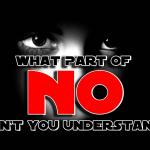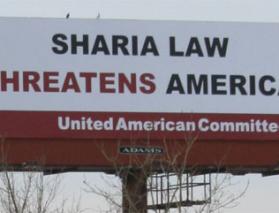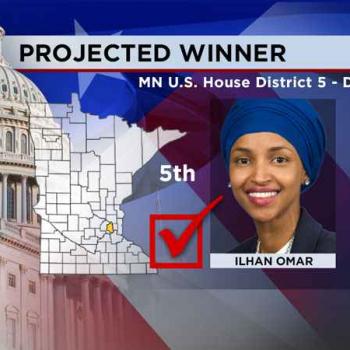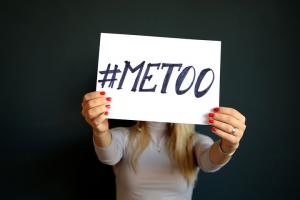 #MeToo should prompt Muslims to ask whether the Muslim communities in the Unites States (and Muslim countries) are immune from domestic violence and sexual abuse. Does it exist in your community?
#MeToo should prompt Muslims to ask whether the Muslim communities in the Unites States (and Muslim countries) are immune from domestic violence and sexual abuse. Does it exist in your community?
Alyssa Milano’s call to women to use #MeToo tweets to publicize the widespread misogynistic behavior became viral. This has primarily involved cases of sexual misconduct- varying from sexual harassment to sexual assaults. Domestic violence against women has typically not been brought up.
Domestic violence (DV) against women, sexual harassment and sexual abuse may be viewed as distinct issues but to me they are different shades of the same problem- the product of a misogynistic attitude.
In the United States, there has been a flurry of cases of women speaking out against well-known public figures with allegations of sexual harassment and/or abuse.
Bill O’Reilly, Bill Cosby, Harvey Weinstein, Ray Moore and even President Trump have been accused in the recent past. Cases involving the Catholic priests have been filed for several years by the parents of the abused children. Cases of domestic violence against sports celebrities are rather common occurrences.
Though #MeToo is meant for individual stories, but what about the Muslims as a community? Are the Muslim communities in the Unites States, and Muslim countries immune from such abuse? Think again if you answered in negative.
Due to the wide range of this subject, I will focus on domestic violence in Muslim communities here. I will address sexual harassment and abuse among Muslim communities in a subsequent post.
You almost never hear this addressed from the pulpit and at Friday sermons, though there are exceptions, as I will point out in a bit. It is still considered a social stigma, and the abused are reluctant to come out.
Domestic Violence

Domestic violence, also called intimate partner violence or IPV (when the abuser is a spouse or domestic partner) can take many forms- physical, sexual, emotional or even financial. Men and women both can be the victims. National Domestic Violence Hotline defines DV as follows:[1]
Domestic violence includes behaviors that physically harm, arouse fear, prevent a partner from doing what they wish or force them to behave in ways they do not want. It includes the use of physical and sexual violence, threats and intimidation, emotional abuse and economic deprivation. Many of these different forms of domestic violence/abuse can be occurring at any one time within the same intimate relationship.
Consequences of DV
Other than the obvious disruption of family fabric, DV leads to many health problems. The victims of DV often suffer from psychological and financial consequences for decades beyond the time abuse occurred. Abused children (boys and girls) and women are more likely to suffer from anxiety, depression and PTSD.
Many patients with Fibromyalgia, one of the most common types of chronic pain disorders, and chronic pelvic pain, have a history of (often undiagnosed) prior history of physical, psychological or sexual trauma. In fact in my chronic pain program, we routinely ask our patients about a history of domestic violence and frequently unmask such history.
Are American Muslim women immune from such abuse?
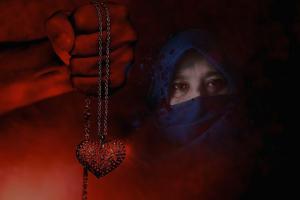
American Muslim women have increasingly taken up the leadership role in many organizations and the boards of the mosques (though they remain rather under-represented on the board of the mosques). San Francisco Bay Area seem to be taking a lead and many of the non profit organizations such as CAIR Bay Area, Islamic Network Group (ING), American Muslim Voice and Muslim Advocates, to name a few, are led by women.
That’s the good news.
The bad news is that the women in the Muslim communities are not immune from domestic violence. I must point out that DV is not limited to children and women, as men are also victims of DV, but to a lesser extent.
Many factors are at play including the desire for male dominance, cultural, family, financial and psychological factors. Illicit drugs and alcohol may also play a role, though within Muslim communities that does not seem like a major factor. Muslim communities, like rest of Americans, have increasingly become aware of domestic violence, which for years remained underground.
One organization that is prominently involved in raising awareness of DV among the Muslim communities is NISA-North American Islamic Shelter for the Abused. Nisa means women in Arabic and the organization has thoughtfully selected the acronym to address abuse and domestic violence against women.
I first came to know about this organization several years ago when its president at the time, Dr. RajabAlly, a local religious leader who frequently gives Friday sermons, made a presentation at my Islamic center.
Their mission is to promote domestic harmony, raise awareness about domestic violence and provide shelter for the abuse. NISA homes provide temporary and emergency housing, in addition to other help in the form of transportation, social services and financial assistance to the abused women.
NISA works to empower victims of domestic violence by providing information, support services, advocacy, counseling and shelter with the utmost confidentiality.[2]
Led by a popular local religious leader, Imam Tahir Anwar, they also aim to prevent domestic violence and bring about family harmony by spiritual guidance by emphasizing Islamic principles.
Next page: My short interview with Imam Tahir Anwar on Domestic Violence.
Share it on your social media by clicking on the icons in the upper left hand.
Never miss another post. Sign up for the newsletter on the upper right hand of this post.


